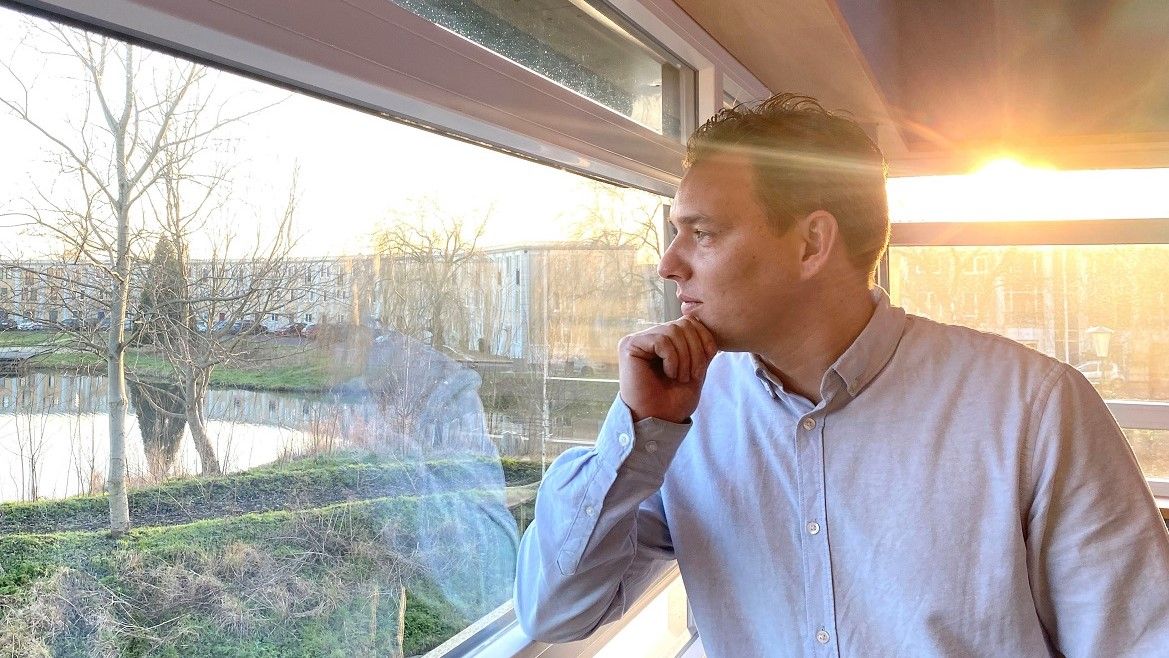Starting as a repairman at a large inverter manufacturer, Chris quickly moved on to technical support. He then became an expert in the safety and commissioning of PV systems at various companies in the solar industry. "At one point I travelled all over Europe to commission large PV systems. I liked doing it 24 hours a day. I’m a real PV person!" Two years ago, as a graduate in electrical engineering and based on his knowledge and experience, Chris started his own company, Brandenburg PV Inspections. His company focuses specifically on inspecting PV installations according to the Scope 12 guidelines. "When I started, there was an increasing need among insurers for PV plant inspection, or inspection was required for very large-scale PV plants. My first inspections were according to the NEN1010 guidelines, and since 2021 PV installations have had their own inspection: Scope 12."
Scope 12 is a standardised safety inspection specifically for PV plants. It is not built onto other inspections. This inspection is initiated by parties, insurers and inspectors from the market, as well as by others. The SCIOS foundation owns this quality system and also manages and develops 11 other Scopes within the sub-schemes Combustion Installations (Scope 1 to 7), Electrical Equipment (Scopes 8 to 10) and Explosion-proof Installations (Scope 11).
Chris’ inspection company is fully certified and authorised to perform Scope 12 inspections. "An independent inspection provides clarity and certainty about the safety, quality and economic efficiency of a PV installation. Our experience is that there’s an increasing need for an inspection of this nature, partly due to the increase in awareness of the risks of a fault in the installation," Chris explains.
"For us as Scope 12 inspectors, everything in a PV plant must be traceable and demonstrable"
An inspection by Brandenburg PV Inspecties consists of up to three parts: firstly, a construction inspection, secondly, a completion inspection (Scope 12/NEN1010), and thirdly, an additional thermographic examination. The building inspection is carried out during construction or around the time the project is completed. It pays particular attention to the method of construction on the roof before panels are installed. For instance, this includes mounting material, ballast, cable management, connectors, and adjustments. "Where necessary, we still have the chance to make adjustments in order to discover any errors early on and thus avoid unnecessary (repair) costs." Chris does not work alone. Together with four other Scope 12 inspectors, he performs independent inspections of project-based and large-scale PV installations.
Better PV installations, reduced (fire) risks
Chris started out in the early stages of PV plant inspection. "We were being asked whenever there was any doubt about an installation. Project developers wanted everything above one megawatt inspected. I developed a practical method on-site myself. In that sense, I have a head start in this field specifically for the PV market. For everything I see on a roof, I ask the question: Is it safe or not? This also includes a risk assessment. The installation might have to be taken offline because the fire risk is too high." Meanwhile, there is greater awareness of the consequence of errors in PV installations. Many problems can result in an electric arc, electric shock or fire. Chris explains: "If we look at all the cabling in a PV installation, those cables are like tentacles. A DC voltage runs through them and we shouldn’t underestimate this. Cables not properly attached will increase the risk of short circuits. With a DC installation, there’s a serious chance of an electric arc, and this creates a (fire) risk."
Mutual knowledge sharing leads to better PV installations
Chris has a clear mission: "Everyone involved needs to be aware that safety is a must." That's why, in addition to Scope 12 inspections, he also conducts Scope 12 workshops. In three different modules, Chris teaches PV installers and inspectors how to install and maintain a PV system in accordance with Scope 12 guidelines. Knowledge sharing is the best way to create awareness. "As well as keeping my own knowledge up to date, I see that the installer also needs the right information to use materials properly. I can guide the installer through this process and I’m happy to be working with other experts in the market." Together with companies such as HellermannTyton, Klauke (via HK electric), Van Der Valk Solar Systems, PVX Multimount, ETEPRO, Stäubli, and Shesolar, Chris shares all the knowledge an installer needs so that the installer can excel in quality. "I do everything in my power to minimise risk in PV installations. And I’m not just sitting still. In order to remain SCIOS-certified, I’m expected to be up to date on the latest knowledge. Providing training courses and workshops allows me to do this. And I’m a board member of the Branch Association of SCIOS Certified Companies, which represents the interests of SCIOS certified inspectors and installers."




